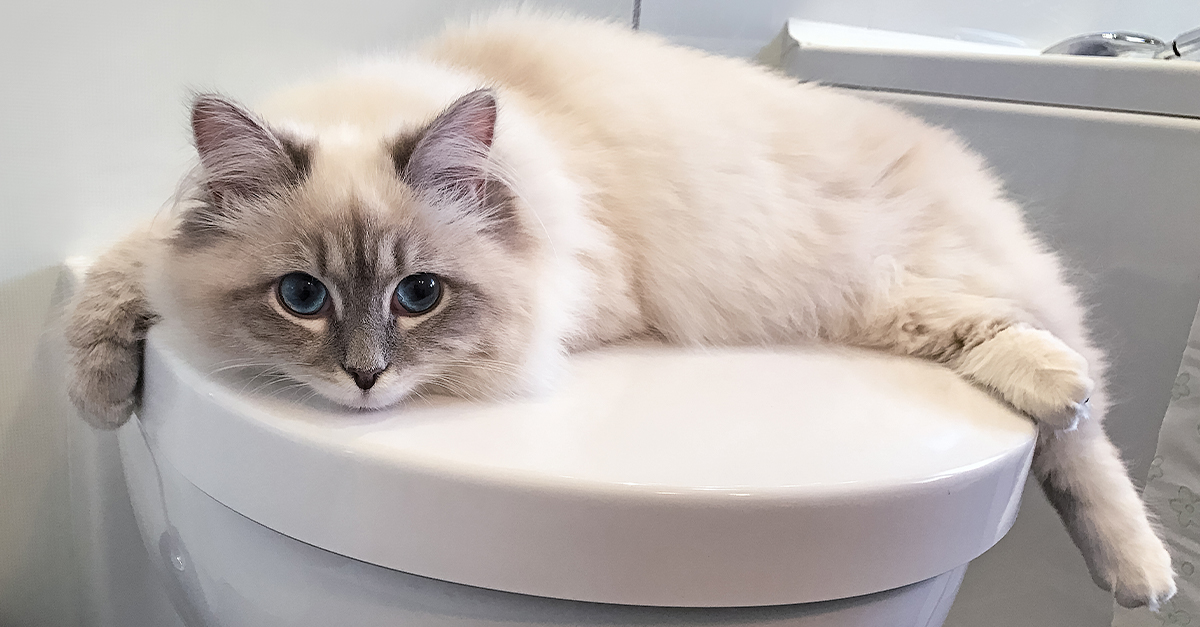Dangers of Disposing Cat Poop in Your Toilet - Precautionary Measures
Dangers of Disposing Cat Poop in Your Toilet - Precautionary Measures
Blog Article
Just about every person has got their own perception about How to Dispose of Cat Poop and Litter Without Plastic Bags.

Introduction
As pet cat owners, it's necessary to bear in mind exactly how we dispose of our feline close friends' waste. While it might appear hassle-free to flush pet cat poop down the toilet, this technique can have detrimental effects for both the environment and human health and wellness.
Alternatives to Flushing
The good news is, there are more secure and much more liable methods to deal with pet cat poop. Think about the complying with choices:
1. Scoop and Dispose in Trash
The most typical approach of throwing away feline poop is to scoop it right into a biodegradable bag and throw it in the garbage. Be sure to utilize a dedicated clutter scoop and take care of the waste quickly.
2. Usage Biodegradable Litter
Choose biodegradable pet cat litter made from products such as corn or wheat. These litters are environmentally friendly and can be safely gotten rid of in the trash.
3. Hide in the Yard
If you have a backyard, take into consideration hiding cat waste in a designated location away from veggie yards and water sources. Be sure to dig deep adequate to stop contamination of groundwater.
4. Install a Pet Waste Disposal System
Invest in a pet waste disposal system specifically made for pet cat waste. These systems use enzymes to break down the waste, reducing odor and environmental influence.
Health and wellness Risks
Along with ecological problems, flushing pet cat waste can likewise present health and wellness threats to human beings. Pet cat feces might consist of Toxoplasma gondii, a bloodsucker that can create toxoplasmosis-- a potentially serious ailment, particularly for pregnant females and individuals with damaged body immune systems.
Ecological Impact
Flushing pet cat poop introduces dangerous pathogens and bloodsuckers into the water system, presenting a significant risk to water communities. These pollutants can negatively affect aquatic life and concession water high quality.
Verdict
Accountable family pet possession prolongs beyond supplying food and shelter-- it also entails correct waste management. By avoiding flushing pet cat poop down the toilet and selecting alternate disposal methods, we can minimize our ecological footprint and secure human wellness.
Why You Should Never Flush Cat Poop Down the Toilet
A rose by any other name might smell as sweet, but not all poop is created equal. Toilets, and our sewage systems, are designed for human excrement, not animal waste. It might seem like it couldn’t hurt to toss cat feces into the loo, but it’s not a good idea to flush cat poop in the toilet.
First and foremost, assuming your cat uses a litter box, any waste is going to have litter on it. And even the smallest amount of litter can wreak havoc on plumbing.
Over time, small amounts build up, filling up your septic system. Most litter sold today is clumping; it is made from a type of clay that hardens when it gets wet. Ever tried to scrape old clumps from the bottom of a litter box? You know just how cement-hard it can get!
Now imagine just a small clump of that stuck in your pipes. A simple de-clogger like Drano isn’t going to cut it. And that means it’s going to cost you big time to fix it.
Parasitic Contamination
Believe it or not, your healthy kitty may be harboring a nasty parasite. Only cats excrete Toxoplasma in their feces. Yet it rarely causes serious health issues in the cats that are infected. Most people will be fine too if infected. Only pregnant women and people with compromised immune systems are at risk. (If you’ve ever heard how women who are expecting are excused from litter cleaning duty, Toxoplasma is why.)
But other animals may have a problem if infected with the parasite. And human water treatment systems aren’t designed to handle it. As a result, the systems don’t remove the parasite before discharging wastewater into local waterways. Fish, shellfish, and other marine life — otters in particular — are susceptible to toxoplasma. If exposed, most will end up with brain damage and many will die.
Depending on the species of fish, they may end up on someone’s fish hook and, ultimately on someone’s dinner plate. If that someone has a chronic illness, they’re at risk.
Skip the Toilet Training
We know there are folks out there who like to toilet train their cats. And we give them props, it takes a lot of work. But thanks to the toxoplasma, it’s not a good idea.

I was shown that editorial about Can You Flush Cat Poo or Litter Down the Toilet? through a friend on another blog. Enjoyed reading our content? Please share it. Help someone else discover it. Many thanks for your time. Visit us again soon.
Request Estimate Report this page